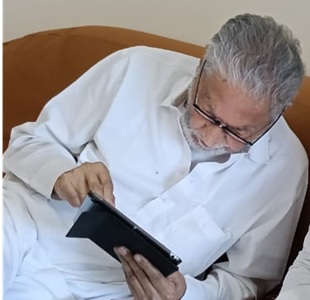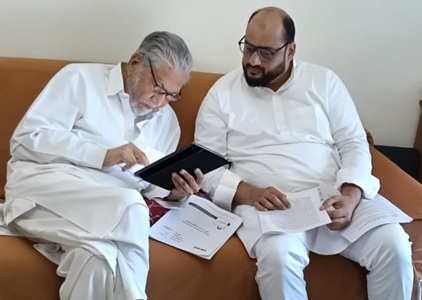 RIYADH: Grand Mufti Sheikh Abdulaziz Al-Asheikh, has urged officials and scholars to find a solution to the growing costs of marriage and exaggerated dowries that burden families, admitting that society cannot solve this problem.
RIYADH: Grand Mufti Sheikh Abdulaziz Al-Asheikh, has urged officials and scholars to find a solution to the growing costs of marriage and exaggerated dowries that burden families, admitting that society cannot solve this problem.
Al-Sheikh said marriage has become a social problem, with people imitating each other. He said spending on marriage ceremonies is beyond the means of many families.
The families of brides often put extra burden on those of grooms, he said, calling on people to put acceptable conditions for marriage.
He said marriage has ethics and rules defined by Shariah and Muslims should abide by it. Marriage should be about respect, stability and sustainability, and not just pleasure that ends with the honeymoon, he said.
A study, conducted by Saleh Al-Shayir from King Saud University, argues that the level of education of a woman often dictates the age when she marries.
Women who go to school get married at a later stage, and those who are highly educated often fail to observe restrictions of customs and traditions, and do not mind marrying foreigners.
Meanwhile, the Ministry of Labor and Social Development is reconsidering a study to support citizens who would get married with SR50,000.
The proposal was rejected by the expert panel in the Cabinet, which returned the draft project to the ministry, asking the National Centre for Social Studies and Research at the ministry to come up with an integrated and updated study on the issue.
The panel said such aid should be granted only to those who are eligible.
The panel said a study must be conducted to include information on the monthly income per capita, the phenomenon of bigger dowries, supporting house ownership, high property prices and the high cost of interest on bank loans.
Delegates from the ministries of finance, labor and social development said the government should seriously consider the possibility of helping individuals wishing to get married through the support of the social affairs department, Saudi Bank of Credit and Savings, charitable societies and philanthropists, because the economic situation requires lowering the costs and limiting the expenditures.
(Courtesy:http://www.arabnews.com)





0 Comments